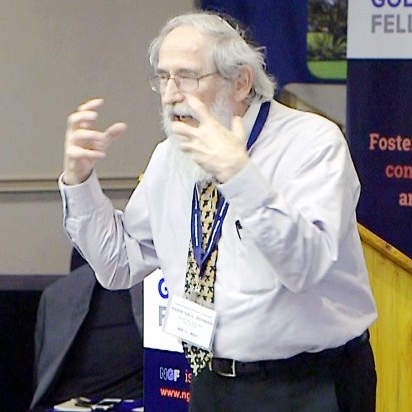click to dowload our latest edition
CLICK HERE TO SUBSCRIBE TO OUR NEWSLETTER


Published
6 years agoon
By
adminAfter all, they felt that robust yet respectful conversations can, and should, be held across denominational, political and ideological lines.
This challenge is not particular to South Africa. In fact, it was the impetus behind the creation of the NGF 30 years ago.
This all started when the Memorial Foundation for Jewish Culture (MFJC) was founded by Dr Nahum Goldmann in 1965. Its aim was to regenerate the Jewish cultural and intellectual life decimated by the loss of millions of lives in the Shoah. Twenty years on, with Jewish cultural life flourishing in Israel and the Diaspora, Goldmann turned his focus to an emerging challenge facing global Jewry: the deep divisions emanating from within Jewish communities.
From this concern was borne a vision: the memorial foundation’s flagship programme, The Nahum Goldmann Fellowship.
For the past 30 years, the aim of the NGF has been to foster meaningful ties among young Jewish leaders from across the globe, and in so doing, strengthen the Jewish community. This has been achieved by hosting international and regional Fellowships on six continents.
MFJC’s president, South African Marlene Bethlehem, says: “The power of the Fellowship is its mission to foster Jewish unity, not Jewish uniformity.”
From May 3 to 6, the NGF, in partnership with the Cape SA Jewish Board of Deputies and US-based relief organisation the Joint Distribution Committee (JDC), gathered 33 young men and women, representing some of our community’s brightest leaders, to take part in the NGF’s regional South African Fellowship.
The Fellowship was led by international and local scholars and leaders. The international scholar in residence was Rabbi Saul Berman, professor of Jewish Studies at Stern College of Yeshiva University and adjunct professor, Columbia University School of Law. He is a civil rights activist who marched at Selma in 1965 to secure equal voting rights for America’s black citizens.
Rabbi Berman spoke of the ethical imperatives that underpin Jewish thought, saying every act for social justice can, and should, emanate from a Jewish value.
The JDC sent its expert on “community resilience” to the gathering, David Gidron. He challenged the Fellows to consider what elements are already in place that foster South African Jewish communal resilience, and tasked Fellows to reflect on areas of potential growth.
The programme, conceptualised by the local organising committee, was headed by Cape Town-based associate director of the MFJC, David Jacobson.
In keeping with the theme of “Inside/Out”, the Fellowship delved into “our responsibility to be active citizens of South Africa and our responsibility to invest in our community”.
Fellows selected to take part in the programme represented the range of denominational, political and ideological beliefs and positions representative of our community. Considering this, and the enormous challenges facing SA Jewry, conversations were challenging.
Rabbi Jeni Friedman, executive vice-president of the MFJC, said: “The diversity of voices that the Fellowship brings together, and the constructive space it provides for meaningful dialogue, is seen too rarely in the rest of the Jewish world where, more often than not, personal or political agendas become more important than the fostering of communal conversation and growth.”
The NGF’s commitment to fostering meaningful dialogue whilst not shying away from difficult conversations, was expressed by Leigh Nudelman Sussman, 34, from Johannesburg. She said that although it was one of her “most meaningful and inspiring experiences”, it was also one of her most “difficult and uncomfortable ones”.
Cape Town’s Emma Daitz, 37, concurred and suggested that the strength of the regional NGF lay in its capacity to host “a wide variety of voices and difficult conversations”.
The conversations that emerged during the packed three days of presentations, workshops and discussions were real and, at times, painful. The Fellows talked about issues affecting them as South Africans, such as race and privilege and the difficulty of navigating activist spaces in South Africa as “white Jews”.
The uniqueness and importance of the space fostered by the NGF was consistently echoed by the Fellows. Cape Town-based Greg Gelb, 30, said the Fellowship event was like none other he had been to as it allowed him to “delve into difficult and meaningful discussions” whilst fostering personal growth.
Jade Weiner, 28, from Johannesburg, felt that the Fellowship not only challenged her “perceptions and expectations”, it also opened her “mind and heart to issues within the Jewish as well as broader South African community”.
Alon Lichtenstein, 35, further reflected that the Fellowship was “an opportunity to engage in dialogue in a deeper way, a vehicle to learn new things from new friends, and a space that challenges all sorts of truths from all sorts of angles”.
Fellows left not only with new knowledge, new experiences and a real sense of connectedness, but also with excitement and renewed hope for the community and their place in broader South Africa.
Lichtenstein said: “The Fellowship is only an entry point for a Jew to ask how he or she can serve the people better. I look forward to this challenge.”
